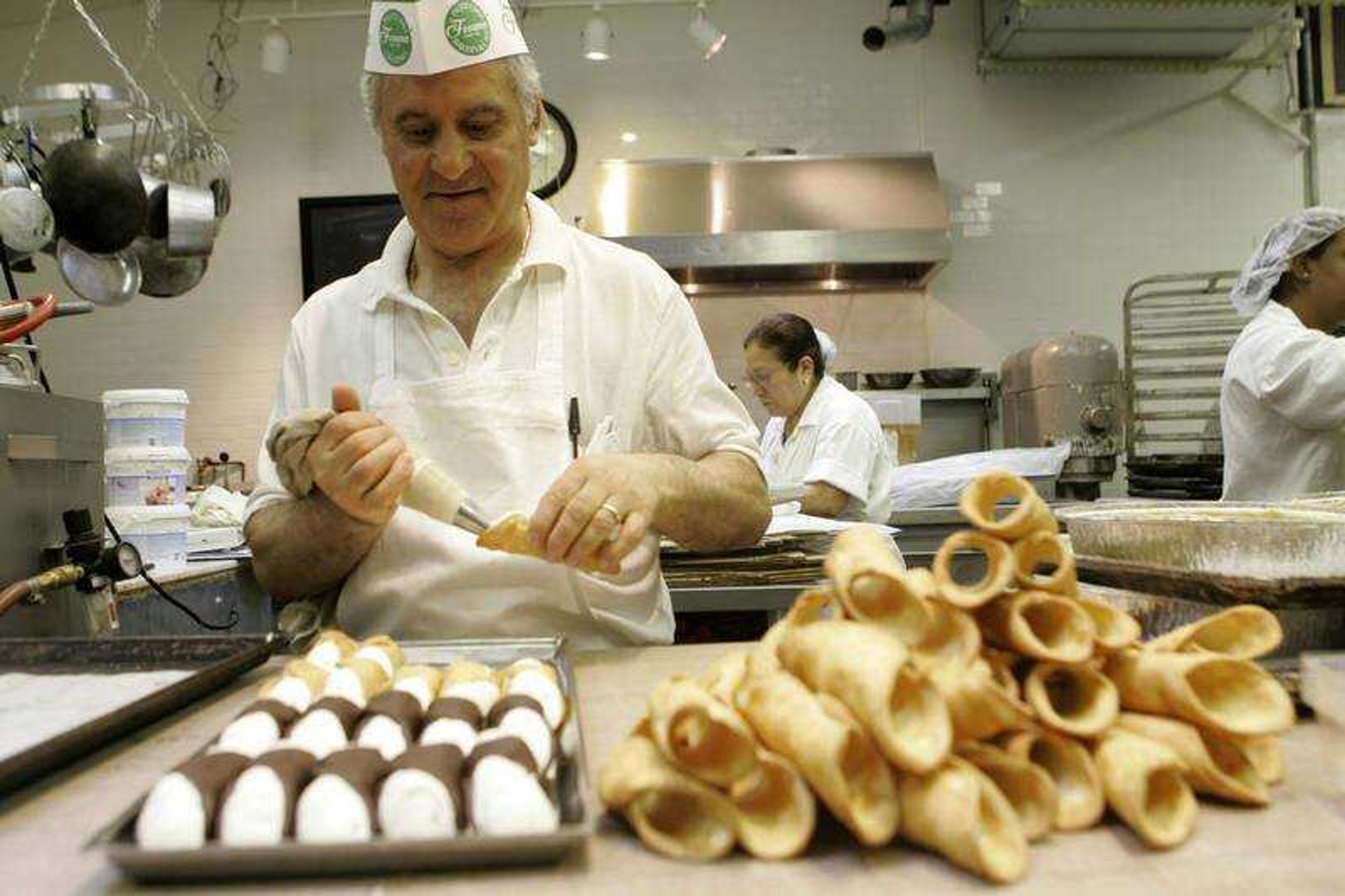NYC keeps the cannoli but drops the trans fats
NEW YORK -- Making cannoli is serious business in New York. It's a dessert so tempting that even a hit man in the "Godfather" couldn't leave a box behind. But even the most respected chefs of this and other pastries are being ordered to make changes today -- the first day New York's trans fat ban takes full effect...
NEW YORK — Making cannoli is serious business in New York. It's a dessert so tempting that even a hit man in the "Godfather" couldn't leave a box behind.
But even the most respected chefs of this and other pastries are being ordered to make changes today — the first day New York's trans fat ban takes full effect.
New York is the first American city to adopt such a stringent rule, which extends to almost all prepared food in restaurants, bakeries, cafeterias, salad bars and food carts. There will be a three-month grace period before big fines are slapped on violators. The artery-clogging substance was first banned from cooking oils last year.
Chefs who relied on trans fats to make their pie crusts flaky, their crackers crispy and their muffins moist have worked overtime finding substitute ingredients. They have burned through hundreds of gallons of oil, shortening and margarine trying to retool old recipes without damaging flavor, texture or color.
Baking supply companies have introduced a host of replacements for the partially hydrogenated vegetable oils that are the biggest source of trans fats. Not even Crisco is made of Crisco anymore. The company reformulated all of its products last year to have "zero grams of trans fat per serving."
New York's biggest maker of fried dough shells for the classic Italian dessert reports that after four months of sometimes frustrating experimentation, cooks finally produced a trans-fat-free replacement that is just as crisp and delicious as the original.
"There is a little difference in taste," said Mauricio Vasquez, general manager of Ariola Foods, which has been turning out pastries in Queens for 85 years. But, he added, "If you weren't familiar with the shell beforehand, you'd never know the difference."
City health commissioner Thomas Frieden, who launched the anti-trans fat initiative, said his department had heard relatively few complaints so far from frustrated chefs.
Those who reject the ban and get caught face a $2,000 fine starting Oct. 1.
Americans have been baking with vegetable shortening loaded with trans fats since the invention of Crisco. Unlike frying oils, whose main purpose is to conduct heat, shortening is a major contributor to taste and texture.
There are plenty of substitutes, including natural fats like butter or lard, palm oil, and a growing list of new oil blends. However, for some bakers, adjusting has been painful.
"We're banging our heads against the wall right now," said Manny Alaimo, an owner of the respected Villabate Pasticceria in Brooklyn.
Italian breads and cookies made with the zero-trans-fat shortening just haven't come out right, he said. A few demanding customers have complained about subtle changes in taste and texture, he said.
"It's going to be a really bumpy. People are just going to have to get used to it," he said.
Such fears have kept other cities from following New York's lead.
Family owned bakeries in Philadelphia raised such a ruckus that city lawmakers gave them an exemption from the trans fat ban that passed there last year.
The one disappointment is that many chefs have been turning to products high in saturated fats, like palm oil, as a replacement. Some research suggests those fats might be just as bad for you as trans fats.
But there's hope: a second generation of low-cholesterol oils is coming out now. Laura Stanley, a consultant who has been working with smaller New York restaurants seeking to adapt, said there have been encouraging signs that they might be improved enough to persuade chefs to use them.
———
On the Net:
NYC Trans Fat Help Center: http://www.notransfatnyc.org/
Connect with the Southeast Missourian Newsroom:
For corrections to this story or other insights for the editor, click here. To submit a letter to the editor, click here. To learn about the Southeast Missourian’s AI Policy, click here.










